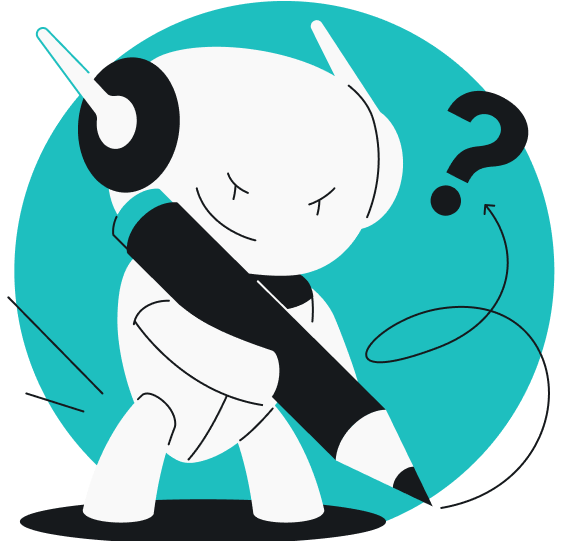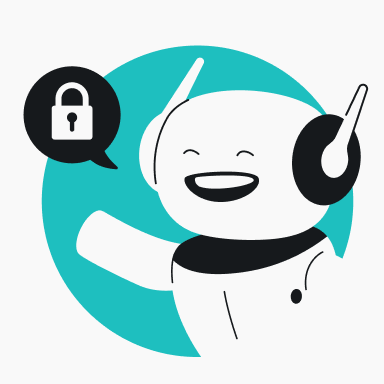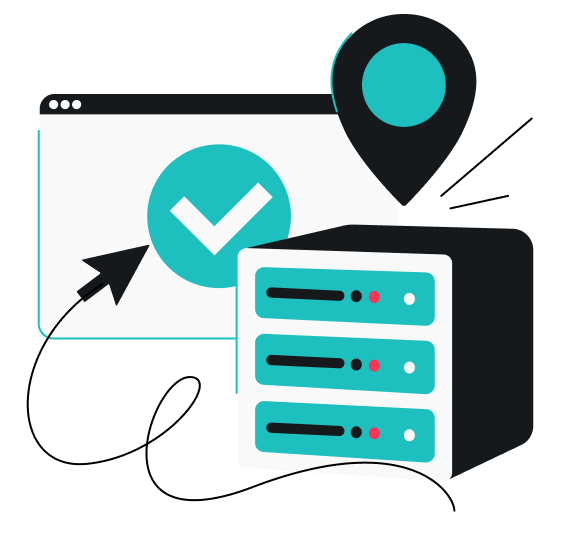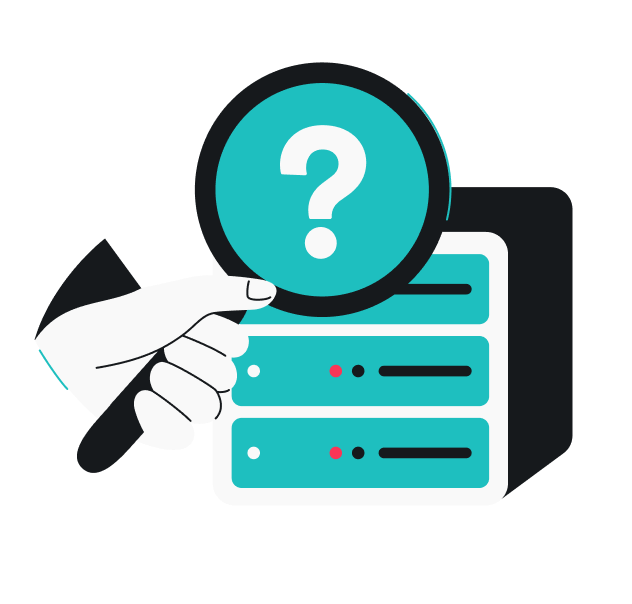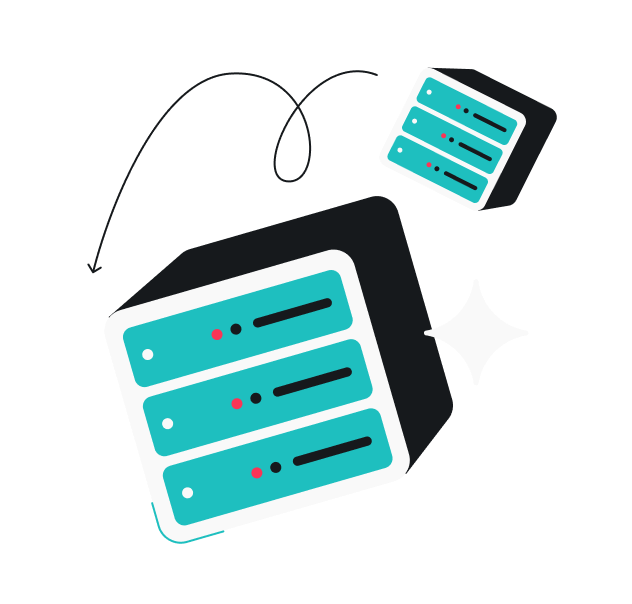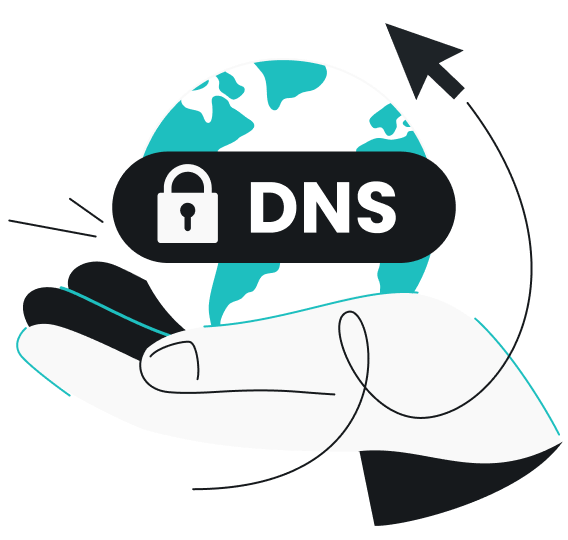Generative AI (Artificial Intelligence) solutions like ChatGPT by OpenAI have become an everyday tool for hundreds of millions of people around the globe. With reliance on AI growing exponentially, it is more important than ever to consider the safety and potential security risks of such tools.
ChatGPT is currently the most popular chatbot used for daily personal and work tasks. But can you trust it, and is it safe to use?
Let’s take a closer look at ChatGPT, its security risks and measures, and how to stay safe while using it.
Is ChatGPT safe?
ChatGPT has multiple built-in security features and is generally considered safe to use. However, there might be some privacy concerns, and just like any other online tool, it is not immune to cyberthreats.
As a ChatGPT user, you should practice good digital hygiene, stay informed about potential AI-associated risks, and take precautions to protect yourself online.
ChatGPT security measures for your protection
First, let’s see what ChatGPT does to protect its users.
On their website, OpenAI claims to be committed to user safety, privacy, and trust. Here are some of the steps that were taken to make ChatGPT a more secure platform:
Encryption
To reduce interception and prevent unauthorized access, OpenAI uses secure protocols to encrypt your data in transit.
Audits and monitoring
ChatGPT is regularly audited and assessed internally by third-party auditing companies to identify vulnerabilities and improve security practices.
Bug Bounty Program
OpenAI’s Bug Bounty Program encourages external security researchers to identify and disclose vulnerabilities. It helps with discovering and eliminating various security flaws.
Transparency policies
To ensure transparency in its security practices, OpenAI regularly publishes updates and findings, sharing key information about security efforts. This encourages accountability, trust, and open dialogue with users.
Compliance measures
To protect users’ data and ensure their right to privacy, OpenAI complies with data protection laws like GDPR and CCPA. Additionally, strict terms of service help prevent misuse of ChatGPT.
Safety filters
OpenAI also has strict content guidelines and applies safety filters that detect and prevent the generation of harmful, inappropriate, illegal, or biased responses.
These security measures help make ChatGPT a more secure and responsible platform for its users.
ChatGPT security risks
While ChatGPT is generally safe, using it still comes with some potential privacy and security risks. Some, like social engineering, might not be directly related to you interacting with the chatbot, but by bad actors using it as a malicious tool instead.
Here are some of the top ChatGPT security concerns:
1. Privacy concerns
OpenAI has multiple security approaches implemented to protect user data. It doesn’t sell personal details and complies with privacy laws.
That being said, ChatGPT retains your chat history for at least 30 days and can use your input information to “provide, maintain, develop, and improve” its services. That’s why you should not include your private data and confidential information in your conversations with ChatGPT.
Even if you opt out of participating in the ChatGPT model training, all details you provide in your prompts might get exposed. If there’s a data security failure, such as a data breach, malicious actors could potentially get access to that sensitive information.
2. Data breaches
You can have a simple chat with ChatGPT without registering and logging in. However, to use more advanced features, such as the voice mode or the Reason function, or to upload a file, you have to create an OpenAI account.
To register on the platform, you need to provide your full name, email address, and date of birth. Signing up for an upgraded ChatGPT version also requires your payment details.
As per OpenAI Privacy Policy, the service collects:
- Your account information;
- User content, including “prompts and other content you upload, such as files, images, and audio;”
- Personal data you may share during communications with the service via email or on social media;
- Other information you may provide while participating in events or surveys;
- Log data, usage data, device information, location information, cookies, etc.
The Privacy Policy also states that OpenAI can disclose your personal data to vendors and service providers, government authorities and other third parties “in compliance with the law,” affiliates, business account administrators, and more.
Having all this sensitive information collected and stored can potentially put it at risk of being exposed in case of a data breach. However, such risk exists with pretty much any online service — how big or small the risk depends on how well the company protects itself against hacking.
3. Misinformation and fake news
With the internet becoming more and more accessible globally, misinformation and the spread of fake news have become a serious issue in recent years. People are able to publish whatever they wish online on forums, social media, and even full-blown websites dedicated to disinformation.
AI tools like ChatGPT are trained with enormous amounts of data that, unfortunately, may include inaccurate and maliciously incorrect information. At the same time, people’s trust in generative AI is growing, with many starting to use ChatGPT as a replacement for search engines like Google.
The problem here is that people may regard ChatGPT’s responses as a reliable source of information when, in reality, they might be based on outdated or false publications online. The chatbot itself has a disclaimer stating that “ChatGPT can make mistakes. Check important info.”
So, it’s crucial to always do your own research and double-check the information ChatGPT provides.
4. Phishing scams
Phishing has been one of the biggest threats online for a while now and doesn’t seem to be stopping anytime soon. While efforts have been made to put an end to it, there is no 100% protection from social engineering tactics, as they rely on human psychology and error.
Before generative AI, phishing scams were easier to identify as long as you knew what to look for. Spelling mistakes, bad grammar, and odd phrasing or style would be the dead giveaways of many phishing emails or text messages.
Now, however, highly advanced AI tools, especially those with readily available free versions like ChatGPT, have made it extra easy for scammers. With a single prompt, they can generate perfect text in any language, imitate the style of any company or service, and create hundreds of believable phishing messages in a matter of minutes.
Additionally, OpenAI technology can be used to create convincing fake customer service chatbots to further trick people into believing the legitimacy of the phishing attempt.
5. Malware creation
ChatGPT can do way more than just chat. Apart from writing elaborate texts, it can also produce hundreds of lines of code that would take even an experienced programmer hours to write in mere seconds. It’s an excellent time-saving tool, but it could potentially be used for malicious purposes.
While ChatGPT has preventative measures in place to block the attempts to generate malicious code and create malware, hackers with enough knowledge and experience might try to manipulate the chatbot and bypass these restrictions.
6. Fake ChatGPT applications
Cybercriminals often try to trick people into revealing sensitive data or scam them out of money by pretending to be a legitimate service. Considering its popularity, ChatGPT is no exception.
There have been multiple instances of fake ChatGPT apps appearing in app stores. While scam apps seem to have been removed from official stores, some risks still remain.
You may come across phishing messages on social media or email that promote ChatGPT services. In reality, they could link to a malicious website or make you download a fake ChatGPT app.
Interacting with a fake app might inject your devices with malware or steal your login credentials and other sensitive information. As a result, you can face dire consequences like financial loss or identity theft.
How to stay safe while using ChatGPT
To improve your security while using ChatGPT, you can take these steps:
1. Avoid sharing sensitive data
You should always exercise caution and share as little of your personal data online as possible. ChatGPT is no exception.
In your prompts, avoid sharing any confidential data, financial details, and other personal information that could potentially put you or your workplace at risk if it ever got exposed to third parties.
2. Review privacy policies and settings
Familiarize yourself with OpenAI’s Privacy Policy, Terms of Use, Security, and other policies. This way, you’ll know what happens with your data and will be more aware of what you’re sharing with the chatbot.
Additionally, go to your ChatGPT account settings and adjust them according to your preferences. For example, turning off Memory or Improve the model for everyone settings might help limit your data exposure.
3. Use strong passwords
Set up strong, unique passwords for all your accounts, including ChatGPT. And be sure to change them periodically.
Having a strong password of at least 12 characters (including lower and uppercase letters, numbers, and symbols) minimizes the risk of a successful brute-force attack. Not reusing your passwords helps protect your accounts in case one gets compromised.
4. Use antivirus software
While using the official chatbot shouldn’t infect your devices with any malware, you may come across threats while browsing online during or after your conversations with ChatGPT.
You can also encounter malicious software when accidentally clicking on a phishing link or downloading a convincing fake app.
All of these scenarios are common, so having a good antivirus installed on your devices is a must.
5. Stay informed about security threats
The most powerful tool against cybersecurity threats is your knowledge.
Educate yourself and stay informed about artificial intelligence, its security, related threats, and trends. The knowledge you gain will help you navigate the AI world more safely and avoid potential risks.
6. Use anonymous accounts
For an added layer of security and privacy, consider using a temporary or an anonymous account for your interactions with ChatGPT. You can use services like Alternative ID to create an online alias and provide these details when signing up for a free ChatGPT version.
7. Use a VPN for extra security
No matter how careful and discreet you are while using ChatGPT, simply being online poses some risks.
To safeguard your online connection and improve your privacy, you can use a VPN (Virtual Private Network). Services like Surfshark VPN encrypt your online activity, making it virtually impossible to intercept and preventing third parties from tracking it.
Bottom line: ChatGPT safety is in your hands
ChatGPT is a powerful generative AI chatbot that is generally safe to use, but it’s not completely risk-free.
However, it’s up to you to minimize the risks related to this tool — educate yourself about the potential threats, use the recommended security practices, and enjoy the benefits of ChatGPT without compromising your safety and privacy.
Frequently Asked Questions
Does ChatGPT collect personal data?
ChatGPT collects the account information you provide upon registration, including your full name, birth date, and email address, as well as any personal information you share in your communications with the service provider.
ChatGPT processes the information you provide in your prompts without storing personal details long-term. However, it might anonymize the data and retain it for service improvement reasons. You should avoid sharing confidential and highly sensitive data.
Does ChatGPT track your device?
ChatGPT doesn’t track your device per se. However, according to the OpenAI Privacy Policy, it collects information such as your IP (Internet Protocol) address, the name of your device, operating system, device identifiers, the type of browser you are using, and your computer connection.
Can I delete ChatGPT history?
You can manage or delete your ChatGPT chat history on the web interface. However, keep in mind that anonymized data from your chat history can be retained and used for improving the service.
Is ChatGPT safe to have on your phone?
Yes, the official ChatGPT app is generally safe to have on your phone if it’s downloaded from trusted app stores. For improved security, regularly update your mobile operating system and use additional security tools like antivirus software and a VPN.
Is ChatGPT safe from hackers?
Just like any other system, ChatGPT isn’t completely safe from cyberthreats. While OpenAI has implemented several layers of security to help protect ChatGPT from hacking attempts, it is still very important to maintain good digital hygiene and adhere to the best security practices.
How does the safety of DeepSeek compare to ChatGPT?
DeepSeek Chat raises legitimate safety concerns with its vague approach to data handling and security. Meanwhile, ChatGPT offers more transparent safety protocols and ethical standards for protecting user information and privacy.

